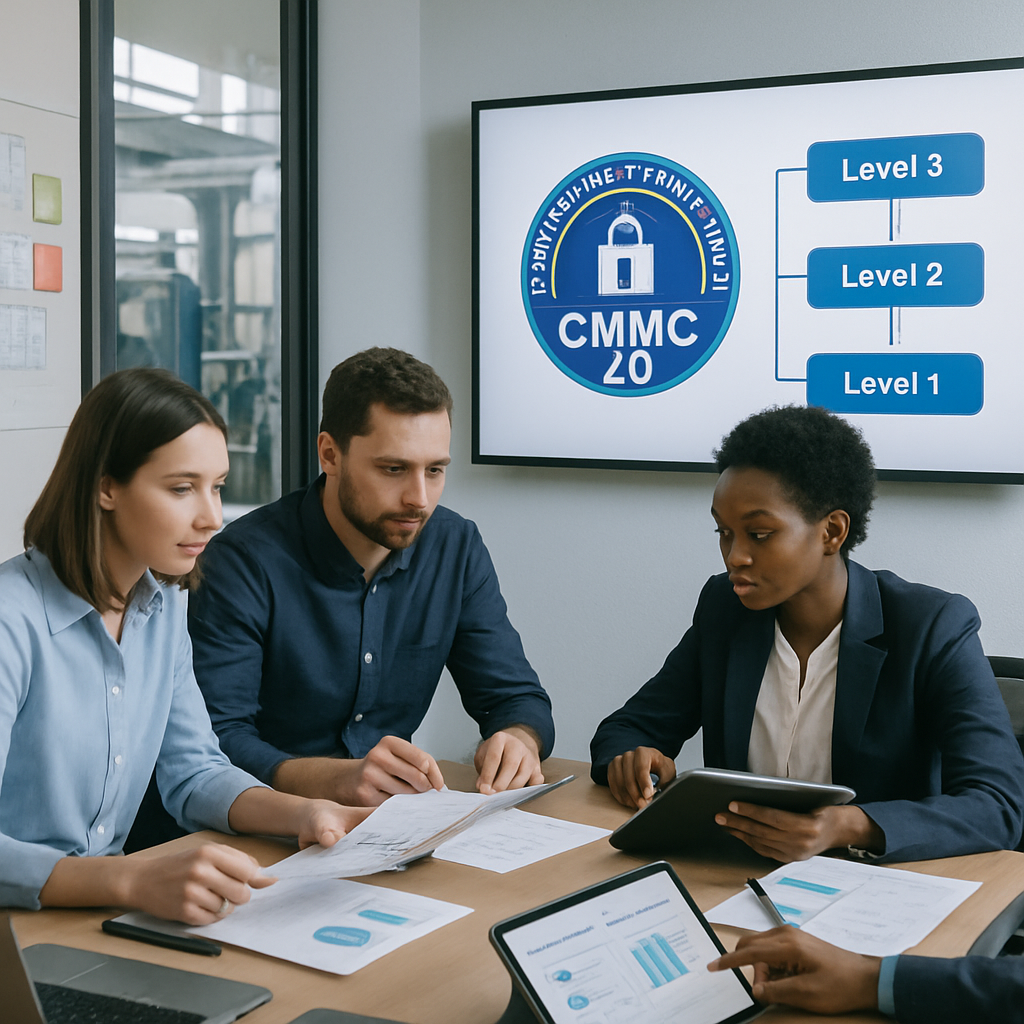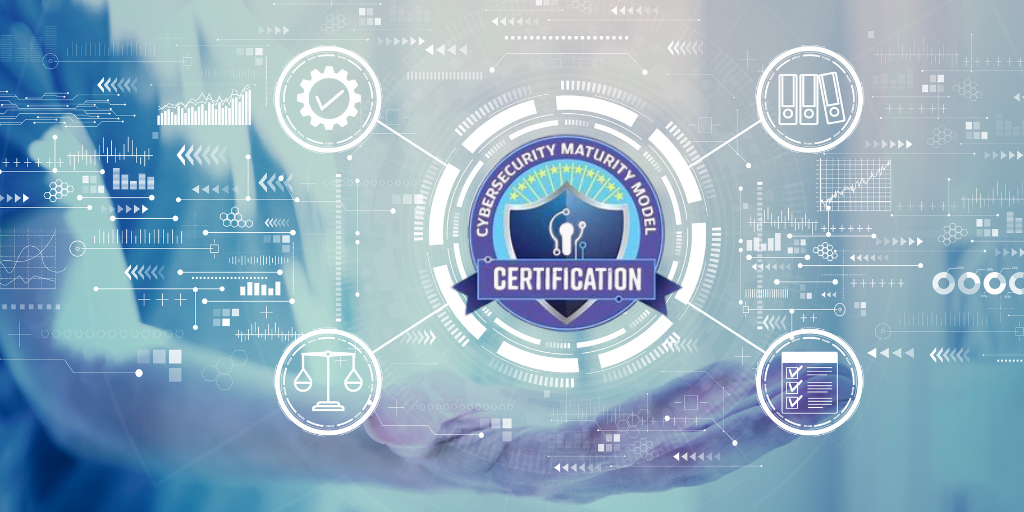Addressing CMMC Compliance Gaps for Small Businesses
Navigating the complex landscape of CMMC compliance can be a daunting task for small businesses, but with the right strategies, achieving and...
3 min read
.jpeg) Michael Markulec
:
Nov 14, 2025 4:31:07 PM
Michael Markulec
:
Nov 14, 2025 4:31:07 PM

Discover how CMMC 2.0 is reshaping cybersecurity compliance for small manufacturers in the defense sector and what steps your business must take to stay competitive.
CMMC 2.0 represents a fundamental shift in how small manufacturers in the Defense Industrial Base (DIB) approach cybersecurity. Unlike previous frameworks, CMMC 2.0 streamlines requirements, reduces compliance burdens for some organizations, and introduces a tiered model, making it more accessible to resource-constrained organizations while ensuring that robust security standards remain in place.
For small businesses, this means a more straightforward path to compliance and participation in Department of Defense contracts. The new model emphasizes accountability, continuous improvement, and risk-based approaches, making it possible for small manufacturers to compete without the overhead associated with legacy compliance models.
CMMC 2.0 introduces a tiered system comprised of three cybersecurity maturity levels, each aligned with defined practices and processes established by NIST SP 800-171 and additional federal regulations. For the majority of small contractors, Levels 1 (Foundational) and 2 (Advanced) represent the primary focus areas. Level 1 centers on safeguarding Federal Contract Information (FCI) through basic cybersecurity controls, while Level 2, corresponding closely to NIST SP 800-171, addresses the protection of Controlled Unclassified Information (CUI) and requires more comprehensive security measures.
Key requirements include implementing robust access control mechanisms, enforcing multi-factor authentication, conducting regular and thorough risk assessments, developing and regularly updating incident response plans, and providing ongoing security awareness training to all personnel. At Level 1, organizations are permitted to perform annual self-assessments and affirm compliance internally. In contrast, Level 2 can entail either self-assessment or, for prioritized contracts involving CUI, independent third-party assessments validated by certified assessors.
Determining the appropriate certification level for each contract is crucial, as requirements may vary depending on the sensitivity of the information being handled. To maintain contract eligibility, organizations must ensure that their cybersecurity documentation, policies, and technical processes are well-documented, up-to-date, and readily available for audit at any time. Proactive preparation positions small businesses to demonstrate compliance confidently—minimizing risk and supporting continued eligibility for DoD opportunities.
Small businesses often face resource constraints—limited budgets, lean IT staff, and competing operational priorities—that make compliance challenging. Interpreting technical requirements and integrating them into existing processes can be daunting, especially for organizations without dedicated security expertise. This challenge is further exacerbated by the need to navigate evolving regulations, ensure the proper handling of sensitive data, and balance day-to-day operational needs with the demands of cybersecurity frameworks, such as CMMC 2.0.
Additionally, maintaining up-to-date documentation, managing ongoing risk assessments, and preparing for third-party audits present ongoing hurdles. The administrative burden of keeping records current, documenting control implementations, and collecting evidence required for audits strains already-limited resources. Legacy infrastructure and lack of formalized security policies further complicate efforts, increasing the risk of non-compliance and contract loss. Without a structured security program and modernized IT systems, small manufacturers may struggle to meet DoD requirements, putting valuable contract opportunities at risk.
Successful compliance begins with conducting a thorough gap assessment against CMMC 2.0 requirements to identify areas of risk and prioritize remediation efforts. For small companies, it’s crucial to focus first on high-impact controls such as access management, which includes enforcing strong authentication protocols and limiting access to sensitive data based on user roles. Investing in robust endpoint protection safeguards company devices from advanced threats. At the same time, ongoing employee security training fosters a culture of awareness and equips staff to recognize social engineering attacks and emerging cyber risks.
To address resource limitations, small businesses can leverage managed security services or partner with a virtual Chief Information Security Officer (vCISO) to optimize their security posture. These partnerships offer cost-effective access to expert guidance on risk management, compliance documentation, incident response planning, and tailored technical solutions, helping organizations meet stringent regulatory standards without straining their internal resources.
Automating security monitoring processes, establishing clear and enforceable cybersecurity policies, and meticulously documenting compliance activities form the foundation for streamlined, ongoing alignment with CMMC requirements. Implementing automated tools for log collection, threat detection, and incident response reduces manual workload and ensures rapid identification of potential issues. Regular internal audits, coupled with a continuous improvement mindset, are essential for adapting to evolving regulations. This proactive approach not only ensures sustained compliance but also empowers small businesses to respond swiftly as the regulatory environment and threat landscape change.
Achieving CMMC 2.0 compliance is more than a regulatory obligation—it’s a strategic differentiator that can directly impact your organization’s growth and reputation within the Defense Industrial Base. When small manufacturers demonstrate robust cybersecurity practices and meet CMMC standards, they signal to government partners and prime contractors that they have the capabilities, diligence, and resilience required for trusted collaboration. This not only increases eligibility for a broader range of contract opportunities but also fosters long-term relationships with key players in the DoD supply chain.
Moreover, the process of implementing and operationalizing CMMC-aligned controls drives improvements that extend far beyond minimum compliance. Enhancing access controls, conducting regular risk assessments, and building a culture of security awareness all contribute to strengthening an organization’s overall cyber resilience. These efforts reduce the likelihood and potential impact of costly breaches, operational disruptions, and reputational damage—safeguarding both business continuity and customer trust.
By approaching CMMC compliance not as a checkbox to be ticked, but as an ongoing investment in security maturity, small companies position themselves as reliable, forward-thinking partners in a highly competitive marketplace. This mindset not only ensures contract eligibility and regulatory alignment but also differentiates organizations as agile innovators capable of meeting evolving customer and industry expectations.

Navigating the complex landscape of CMMC compliance can be a daunting task for small businesses, but with the right strategies, achieving and...

Navigating the complexities of PCI DSS compliance can be daunting, but ensuring your small business meets these standards is crucial for financial...
.png)
In an era of ever-evolving digital threats, the recent cyberattacks on significant companies like Stop & Shop and AT&T highlight the crucial need for...